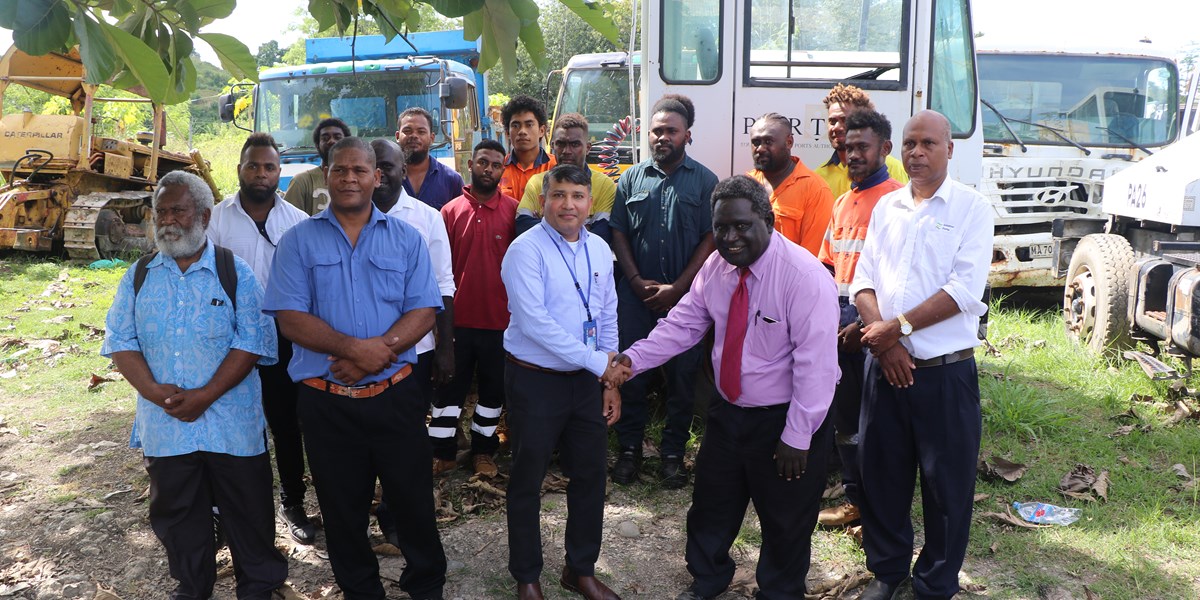SIPA HANDS OVER MACHINES TO SINU

Solomon Ports has handed over used machineries to the Solomon Islands National University (SINU) to their automotive engineering department.
This will go towards the training of students in getting hands on experience with heavy machineries.
Over ten heavy port operation machines were handed over in a brief ceremony held at SINU main campus at Kukum last month, where they were handed over by SIPA CEO Mr. Eranda Kotelawala to SINU Dean of Faculty of Science, Mr. Solomon Pita.
The handover ceremony was witnessed by SINU’s staff, automotive students, and staff from Solomon Ports.
Speaking during the event SINU Dean of Faculty of Science, Mr. Solomon Pita, thanked Solomon Ports for recognizing the need to hand over such machines to the University and that it would bring huge benefits.
Mr. Pita said this was a win win situation, which he said the students learning from the donated machines might one day work for the port’s authority.
He said the machines despite being old, would be very useful to the students for many more years to come.
“The appearance may be old, but what’s inside is of very sophisticated technology, which will give our students a better understanding of such heavy machines,” he said.
“Your contribution will lift the standard and level of training that we provide for our students who will become resourceful people in the automotive industry here in the Solomons.”
In return, Solomon Ports CEO Mr. Eranda Kotelawala said initially the machines were tendered but was then decided to donate to SINU and improving the University’s technical trainings.
He said the Ports fleet had to be upgraded from time to time, which is why the used machines are then chosen to be donated and would be beneficial to the University.
“I think it was the right decision to give this over to the University, which we trust will improve the knowledge and standard of technical trainings here,” he said.
“The important thing is the relationship between Solomon Ports and SINU, which one day we hope to see students who trained on these machines, might come to work for the Port.”